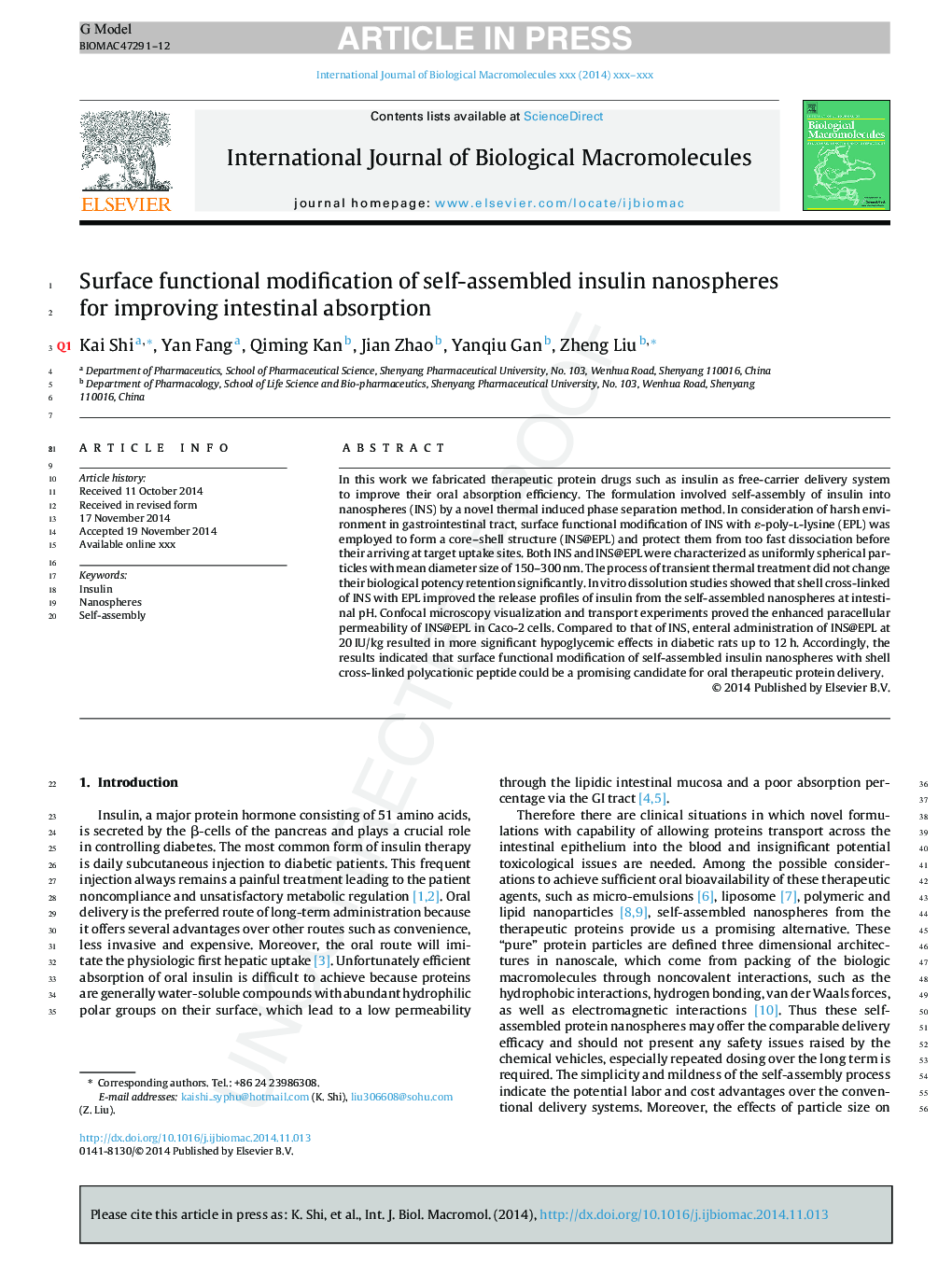| Article ID | Journal | Published Year | Pages | File Type |
|---|---|---|---|---|
| 8331675 | International Journal of Biological Macromolecules | 2015 | 12 Pages |
Abstract
In this work we fabricated therapeutic protein drugs such as insulin as free-carrier delivery system to improve their oral absorption efficiency. The formulation involved self-assembly of insulin into nanospheres (INS) by a novel thermal induced phase separation method. In consideration of harsh environment in gastrointestinal tract, surface functional modification of INS with É-poly-l-lysine (EPL) was employed to form a core-shell structure (INS@EPL) and protect them from too fast dissociation before their arriving at target uptake sites. Both INS and INS@EPL were characterized as uniformly spherical particles with mean diameter size of 150-300Â nm. The process of transient thermal treatment did not change their biological potency retention significantly. In vitro dissolution studies showed that shell cross-linked of INS with EPL improved the release profiles of insulin from the self-assembled nanospheres at intestinal pH. Confocal microscopy visualization and transport experiments proved the enhanced paracellular permeability of INS@EPL in Caco-2 cells. Compared to that of INS, enteral administration of INS@EPL at 20Â IU/kg resulted in more significant hypoglycemic effects in diabetic rats up to 12Â h. Accordingly, the results indicated that surface functional modification of self-assembled insulin nanospheres with shell cross-linked polycationic peptide could be a promising candidate for oral therapeutic protein delivery.
Keywords
Related Topics
Life Sciences
Biochemistry, Genetics and Molecular Biology
Biochemistry
Authors
Kai Shi, Yan Fang, Qiming Kan, Jian Zhao, Yanqiu Gan, Zheng Liu,
